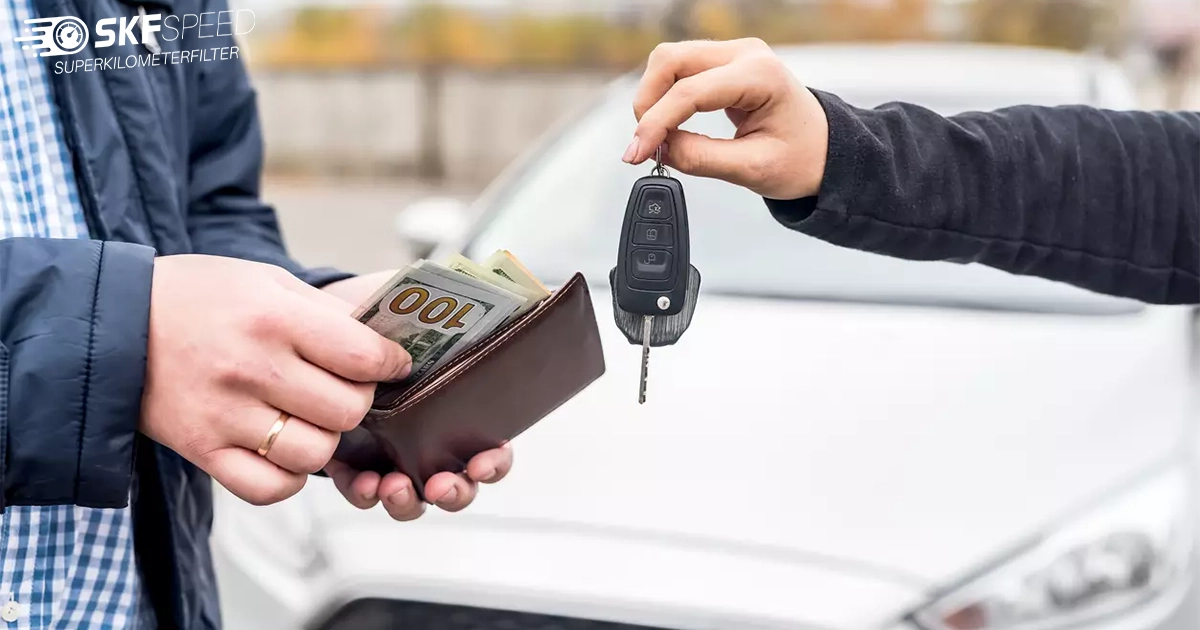
What if the private seller sold me a car with odometer rollback? In today’s world, buying a second-hand car requires a lot of caution and patience. Imagine you have seen a perfect vehicle for yourself. It is sleek, looks properly maintained, and has a decent mileage reading. The seller also seems confident, the price is right, and you are one step away from buying this automobile. But behind this charming interior and convincing pitch hides a potential nightmare that could destroy your dreams and cost you thousands. What if this is a scam? What if the displayed mileage isn’t correct? Get ready, as we will discuss what would happen if a private seller sold me a car with odometer rollback.
Odometer fraud occurs when someone illegally changes a vehicle’s odometer to show fewer miles than the auto has actually traveled. This dishonest practice is used to make the car seem more valuable. It happens because lower mileage often leads to a higher price in the used car market.
Odometer fraud tricks people by displaying false mileage. Buyers believe that the numbers on the odometer reflect how much the car was used. However, that is NOT always true. Sellers usually change the mileage using various methods. They manipulate odometers for older automobiles and use more advanced technologies for new cars. Such actions can hide real information about a vehicle and its condition.
Odometer fraud is mainly about making more money. A car with 60,000 miles is worth significantly more than the same model with 120,000 miles. This huge difference in price attracts dishonest sellers. They roll back the odometer to make the car seem less used. By doing so, they can sell the vehicle for a much higher price. Unfortunately, buyers often don’t know how to check the true mileage and end up overpaying. This more likely leaves them with a car that has more issues than they expect. In the end, with unethical methods, sellers increase their profits at the customer’s expense.
If you purchased a car and the seller rolled back the odometer, you might be the target of fraud. This is prohibited in the United States, according to the Federal Odometer Act. You have legal possibilities, but proving fraud is difficult. Start by collecting a car history report from Carfax or AutoCheck. This can help you identify any mileage inconsistencies. Have an expert mechanic inspect the automobile to verify its condition. Please notify your state’s consumer protection office as well as the National Highway Traffic Safety Administration (NHTSA). You may be entitled to reimbursement, including the difference in the car’s worth and the amount you paid. Consider speaking with a consumer protection attorney to discuss your legal alternatives.
Let’s pretend you came across a decent offer for a used 2017 Mazda car with just 45,000 miles. The seller, James, claimed he was the original owner and had used this vehicle only for short trips, aside from very rare occasions. The best part?! The price was $4,000 less than other similar models. So, you made up your mind to purchase it for $12,000.
Several months later, you brought your new vehicle in for an oil change. The mechanic noticed unusual wear that didn’t match the shown mileage and discovered an old oil change sticker. It was hidden behind the new one and showed it had 100,000 miles three years ago.
In this case, as soon as you run a history check on your vehicle, it will reveal that the car actually covered more than 100,000 miles, and James wasn’t the original owner. You can file a police report, report the fraud to the NHTFA, and sue James for manipulation.
If a private seller sold me a car with odometer rollback, I would have serious issues due to the incorrect odometer reading in the vehicle.
To prevent becoming a victim of odometer fraud, watch out for these warning indicators when purchasing from a private seller:
Tampering with odometers is not only immoral but also prohibited. The Federal Odometer Act of the United States makes it illegal to disconnect, reset, or tamper with a vehicle’s odometer with the intention of changing the recorded mileage. Violations can result in serious penalties and even imprisonment.
However, it might be difficult to enforce these regulations when a private seller sold me a car with odometer rollback. Independent vendors could be more difficult to locate or hold responsible for their actions after the sale, in contrast to dealerships, which are subject to more strict regulations and inspections.
That’s why buyers must take extra precautions when purchasing from a private seller. Running a vehicle history report, thoroughly inspecting the car, and checking for inconsistencies in maintenance records are just a few quick steps to protect yourself from fraud and prevent any complications.
You can take the following steps if you believe that a seller sold you a car with odometer rollback:
Odometer fraud seems to be an issue only for sellers and buyers. However, its impact goes far beyond the two sides. Fraudulent experiences in the used car market interfere with the market’s normal functioning. Such practices artificially change the value of vehicles and make it extremely difficult for honest buyers to trust sellers. Moreover, if a buyer purchases a vehicle without a thorough investigation and trusts the vendor, he will most likely end up overpaying for a car that is older and more used. Widespread fraud made a lot of people choose a more expensive but trustworthy method – buying a new car.
It is not always the financial impact that causes problems. Odometer tampering can also have environmental and insurance-related complications. Vehicles with higher miles often cause more emissions, which, of course, contribute to additional environmental issues. Incorrect mileage will also cause problems with insurance companies. If the reported mileage is not accurate, it can prolong insurance processes, cause higher premiums, or cause various disputes over claims. Hence, it’s crucial to maintain accurate mileage readings and always check the odometer before buying an automobile.

People employ mileage correction and mileage rollback tools to change vehicle mileage. These tools are both illegal and unethical. They change the odometer reading and delete car miles that have already been recorded from the dashboard. Fortunately, they are easily traceable and detected by scanner devices.
The Mileage Blocker, on the other hand, is a device that halts the mileage recording process. It was created for car testing purposes and helps testers optimize vehicles without increasing mileage. Imagine how disappointing it would be to take the car for testing with 50,000 miles and get back with a 55,000 mileage reading. The mileage blocker has several unique features that make it the best device on the market:
The device is meant for only legal and ethical purposes. Nobody should use this device to bypass the local laws and regulations. You should use the device in a controlled environment. The device is available on the Super Kilometer Filter website, and you can buy the mileage blocker now. For any detailed information, contact the customer service and support team.
If you thought, what if a private seller sold me a car with odometer rollback? Now you understand how important accurate mileage is in the auto industry. Inaccurate vehicle odometers can be costly for buyers and will have lower resale prices. Additionally, odometer fraud will increase maintenance and upkeep costs. Therefore, you must carefully check and analyze the odometer reading before purchasing a used car.







Here you will find all the details about our company
Here you will find shipping and return related information
Here you will find information on all technical questions
Here you will find helpful information about installation